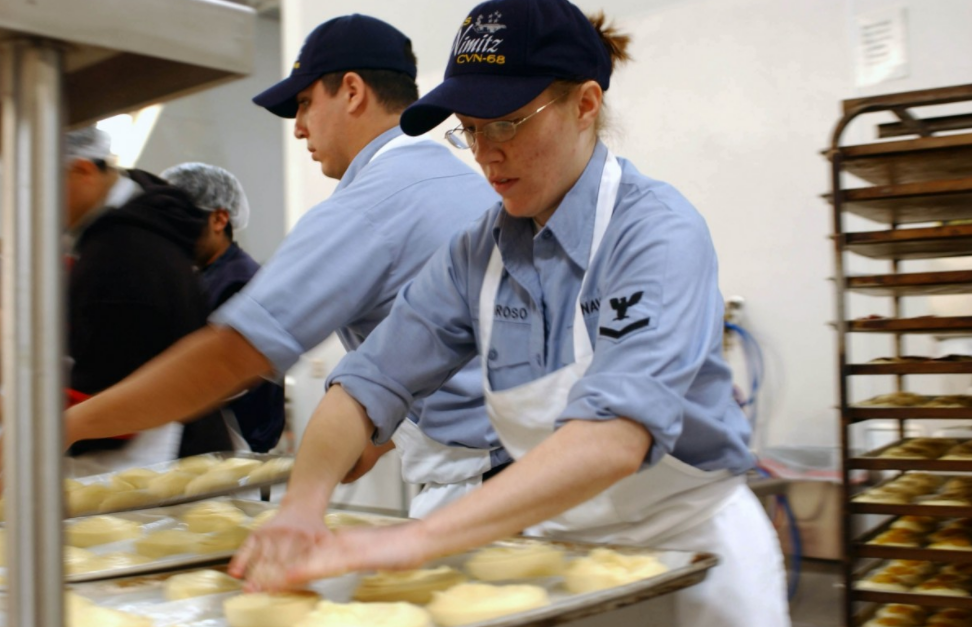
Throughout the media, employers have been crying out about the labour shortage and complaining about the damage caused to their wallets. In Quebec, the number of vacant positions is approximately 219,000 and the figure is 816,000 for Canada as a whole. Ninety-four per cent of Quebec businesses say they are short on manpower. The bosses and their minions do not hesitate to point the finger at what they consider to be the main culprit: the Canada Recovery Benefit (CRB) and its predecessor the Canada Emergency Response Benefit (CERB).
Already in May 2021, several companies made it known that they are tired of workers having the choice of not selling themselves to a boss without starving. According to them, these workers would be too coddled and no longer see the value of hard work! One wonders if these business owners would be so enthusiastic about work if for once they had to work their asses off to make someone else rich instead.
They all seem to be unaware that the situation for workers in Canada is far from rosy. One in two Canadian workers lives from paycheque to paycheque. If the meagre $1,200 a month (before taxes) from the CRB is more attractive than the jobs available, maybe the problem is not the CRB. The greedy employers who offer poor wages and conditions to their employees have only themselves to blame. Moreover, the pandemic is still raging and workplaces remain vectors for the spread of the virus. No wonder many people choose not to put their health at risk. The views of many workers were recently expressed in a letter to The Globe and Mail from a former restaurant worker:
“Let us be clear. It’s not that we don’t want to work – it’s just that we don’t want to do physically demanding work in substandard conditions, with no benefits, for minimum wage. And we especially don’t want to do it during the fourth rising wave of a pandemic. A study released earlier this year found that the risk of death during the pandemic increased by 40% for food and agricultural workers in California.”
Recently, the CEO of the Quebec Council of Employers (Conseil du patronat du Québec, or CPQ) released an opinion letter outlining 10 solutions for the labour shortage. Not surprisingly, improving wages and working conditions were not among them. Quebec bosses and their friends in the media prefer to ask older workers to spend their last years on the job.
This same Quebec Council of Employers CEO was refreshingly honest recently in response to the proposal of the FTQ, Quebec’s largest labour organization, to raise the minimum wage to $18 an hour. He said, “Everyone wants to live well, but unfortunately, the economy doesn’t work that way at all.” The message couldn’t be clearer: poverty is an integral part of capitalism.
To add insult to injury, while the CPQ is calling for the abolition of the CRB and defending low wages, it is asking that government subsidies to businesses be maintained!
Indeed, the bosses and their lackeys avoid talking about the huge “corporate welfare” programs that have been offered to businesses during the pandemic. The Canada Emergency Wage Subsidy (CEWS), which is just one of the many subsidies that have been given to business, has so far given $91.51 billion of public money to private companies. The various corporate subsidies have cost the federal government $240 billion in the first eight months of the pandemic alone.
And there is no shortage of examples of questionable uses of this money. For example, the CEWS has enriched hedge funds that play the stock market like a casino and further fattened CEOs and shareholders with dividends and bonuses. Companies have not hesitated to pocket this money while laying off workers.
And what about the political representatives of the bourgeoisie?
The Bloc Québécois, which claims to represent “the people of Quebec”, was quick to defend the only Quebecers who really matter to them: the bosses. For the party, the CRB “has had its day.” At the same time, the Bloc called for making it easier for retirees to return to work, supposedly to help low-income retirees make ends meet. Instead, this would lead to more cheap labour for the bosses and allow the government to wash its hands of any improvements to the pension system!
Justin Trudeau’s Liberal government plans to end the CRB on Oct. 23. Like the Bloc, the Liberal Party is banking on getting retirees back to work.
Erin O’Toole’s Conservatives, on the other hand, voted against the extension of the CRB, and their intentions can be inferred quite easily. This pro-business party is also proposing to extend corporate welfare: they want to make it easier for businesses to borrow money, and are even proposing to pay up to 50 per cent of workers’ wages with public money for the first six months! This is nothing less than an admission of capitalism’s inability to create good jobs without government assistance.
None of these parties want to address the main cause of the problem, which has been pointed out by the Quebec Council of Employers: capitalism does not allow for everyone to have well-paid jobs with good working conditions. The problem is not that people don’t want to work, but rather that they don’t want to be exploited for crumbs.
But in a capitalist economy, this is not possible. As long as businesses remain profit machines in the hands of a tiny fraction of the population, workers will be forced to sell themselves to put bread on the table and a roof over their heads. Only a socialist economy democratically controlled by the workers will provide well-paid, quality jobs for all.

